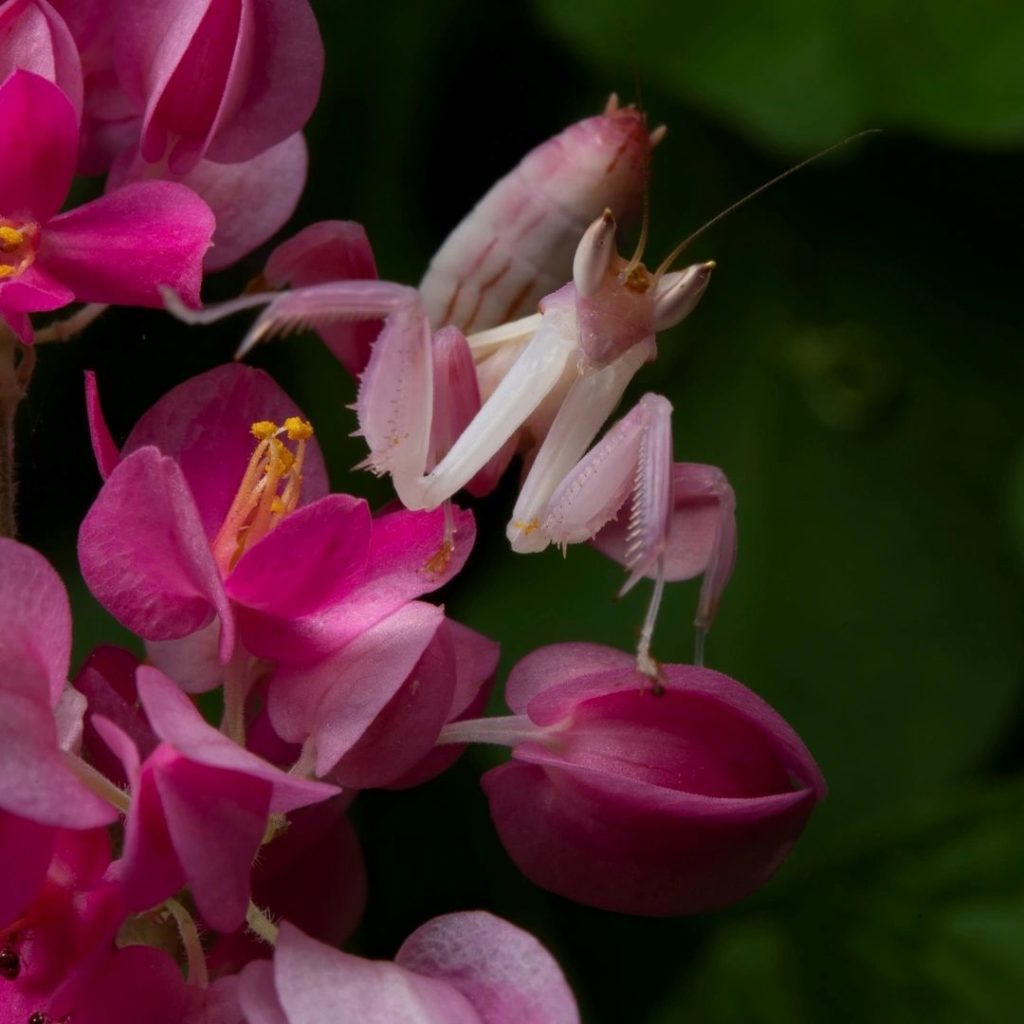Camouflage Bugs

ORCHID MANTIS
Many insects use camouflaging in the wild as a way to keep themselves hidden from predators and people. Take a look at these camouflage bugs who are the masters of disguise. You’ve probably heard of flowers that eat insects, like the Venus Fly Trap. How about an insect that looks like a flower? The Orchid Mantis lure in their prey with their flower-like appearance. They don’t even have to hunt; they simply perch on a leaf and wait for another bug to come along.
Slow color changes are triggered when they detect something new in their environment. What a great disguise!
STICK INSECT
These masters of mimicry are the world’s longest insect!
This bug spends much of its time in trees, munching on leaves. When predators approaches, the stick insect remains completely still in order to blend in with the branches.
If a predator isn’t fooled and grabs the bug by the leg, it’s no big deal. The insect can detach the leg and scuttle away. It will later grow back the lost limb.
The females from these species lay eggs that look like plant seeds. This prevents carnivorous insects from eating the eggs.
This creepy crawler really knows how to go undercover!
SPOTTED LANTERNFLY
Spotted Lanternfly are well concealed camouflage bugs, who blend into trees.
They feed on plants by sucking out the sap from leaves, stems or trunks. The bug sucks in more sap than it can handle and excretes most of it. That excretion is called “honeydew” and can grow mold or attract other insects, further damaging the tree.
Because they cause extensive damage to trees, spotted lantern flies are a threat to many local industries, including timber, orchards and vineyards. They are particularly dangerous for vineyards, as lantern fly damage in one part of the crop can taint the rest.
Finally, if you have a bug problem in your home or business, we can help.
More resources:
